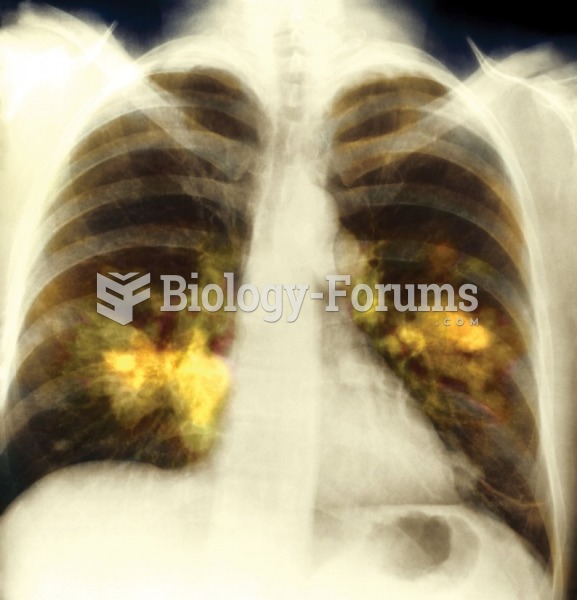|
|
|
You should not take more than 1,000 mg of vitamin E per day. Doses above this amount increase the risk of bleeding problems that can lead to a stroke.
About 100 new prescription or over-the-counter drugs come into the U.S. market every year.
Anesthesia awareness is a potentially disturbing adverse effect wherein patients who have been paralyzed with muscle relaxants may awaken. They may be aware of their surroundings but unable to communicate or move. Neurologic monitoring equipment that helps to more closely check the patient's anesthesia stages is now available to avoid the occurrence of anesthesia awareness.
Cytomegalovirus affects nearly the same amount of newborns every year as Down syndrome.
Cancer has been around as long as humankind, but only in the second half of the twentieth century did the number of cancer cases explode.







